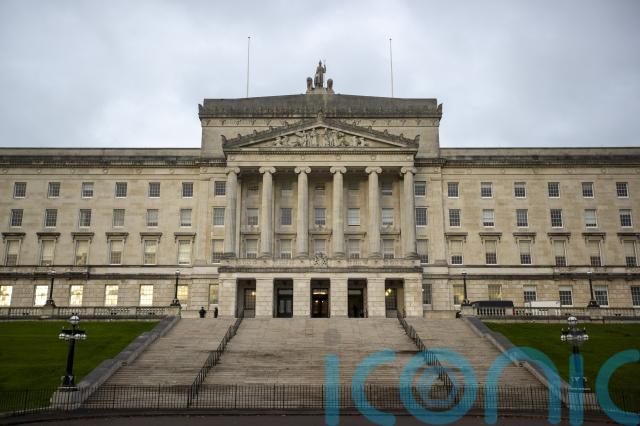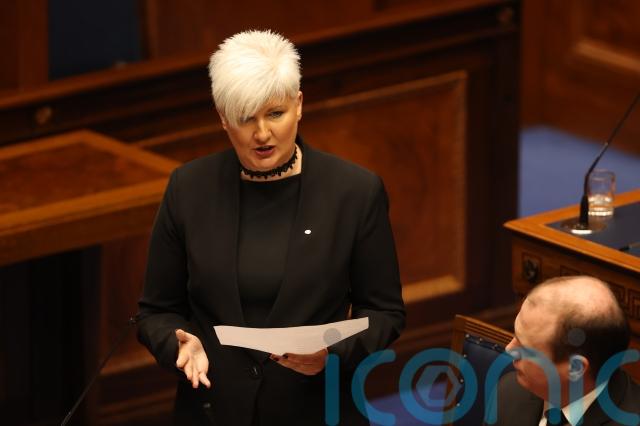
Evidence given to a Stormont committee suggesting a failure to ban mercury fillings in Northern Ireland would represent a violation of the Good Friday Agreement has been branded inappropriate by a DUP MLA.
Joanne Bunting objected to remarks from a representative of the World Alliance for Mercury-Free Dentistry which she said was “threatening” MLAs with action from the US Government.
It came as a Department of Health official told Stormont’s Windsor Framework Democratic Scrutiny Committee that the proposed EU ban on dental amalgam fillings would have cost implications for taxpayers and patients.
The committee is carrying out preliminary investigations on the consequences for Northern Ireland of any amalgam prohibition.
The EU is set to prohibit the use of amalgam from January 2025 as part of a health drive to reduce public exposure to mercury.

Under post-Brexit trading rules, aspects of EU law still apply in Northern Ireland.
Some member states will be able to avail of an 18-month derogation if it can be demonstrated the law change would have a disproportionate socio-economic effect on low-income households.
The amended Mercury Regulation will also introduce a ban on member states exporting dental amalgam.
The Assembly committee has been established to scrutinise forthcoming EU law changes as part of the Stormont brake oversight element of the Windsor Framework.
The Stormont brake mechanism allows a minimum of 30 MLAs to refer a proposed law change to the UK Government.
The Government would then make an assessment of the proposed changes on Northern Ireland and could ultimately veto its application in the region.
Representatives from the British Dental Association (BDA) have already warned that the proposed amalgam ban could lead to the collapse of NHS dentistry in Northern Ireland.
Representatives from the World Alliance for Mercury-Free Dentistry appeared before the committee on Thursday.
Florian Schulze urged MLAs not to use the Stormont brake mechanism over the amalgam ban.
He said: “Dental amalgam is composed of 50% highly toxic mercury which is inevitably released during placement and removal, and also during its time in the mouth.
“An average filling contains 0.6g of mercury, which is two times the lethal does if ending up in the bloodstream.
“It is so toxic that it has already been banned for all other uses like lamps and batteries, and should no longer be placed in the mouth.
“There is no alternative to phase it out in line with the EU deadline.”
Giving evidence from Washington DC, Charles Brown invoked the 1998 Good Friday Agreement as he said Northern Ireland should move towards mercury-free dentistry.
He said: “The EU is not going to accept this, the Irish Parliament is not going to accept this, this idea of saying we are going to keep within the EU trade area mercury fillings.”

Ms Bunting said there was no doubt among the committee or dentists that it is preferable not to use mercury in fillings.
She added: “However, we have other factors we must consider because of the timeframe of the proposed ban.”
The DUP representative then read from written evidence which had been provided to the committee.
She read: “The World Alliance for Mercury-Free Dentistry is watching carefully. Unless the demands of this pro-mercury lobby group are rejected we are prepared to file a petition with the US State Department asking for my Government to investigate a violation of the Good Friday Agreement.”
Ms Bunting said: “I think in circumstances where we are trying to move in accordance with the needs of our population, understanding the circumstances and what would be best, I am not sure that is a nice way or an appropriate way to move forward, to threaten us with the American government.
“I do feel that was inappropriate.”
Michael O’Neill, head of dental and ophthalmic policy in the Department of Health, told MLAs there was no doubt that the direction of travel across the globe was to significantly reduce usage of amalgam.
He added: “A key concern of ours relates to the proposed timescales.
“The proposals will mean that for the vast majority of our patients amalgam would no longer be an option.”
He said alternative materials would need to replace the use of amalgam.
“We are concerned about the impact on service capacity which has not yet recovered to pre-pandemic levels and to the cost to both the taxpayer, which we estimate will be £3.6 million, as well as the £2.9 million cost to patients who would need the white fillings.”
Mr O’Neill said: “Unfortunately for us, while other member states can plan with certainty regarding January 2025, it will be a number of months at least before we know what laws will be in place in Northern Ireland in January.”
Subscribe or register today to discover more from DonegalLive.ie
Buy the e-paper of the Donegal Democrat, Donegal People's Press, Donegal Post and Inish Times here for instant access to Donegal's premier news titles.
Keep up with the latest news from Donegal with our daily newsletter featuring the most important stories of the day delivered to your inbox every evening at 5pm.